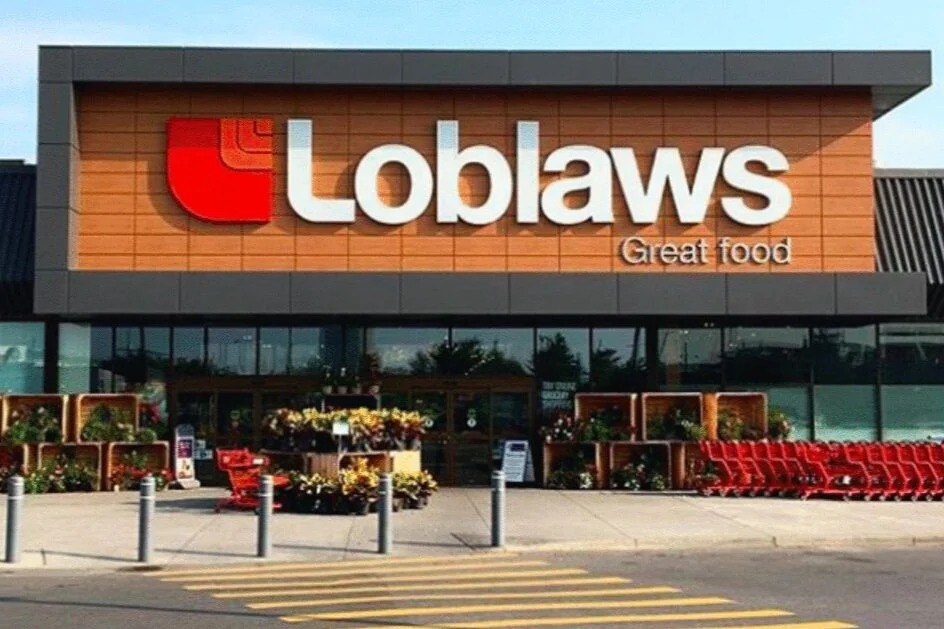The Digital Customer Experience Retailers in Canada Need to Offer Now
/Author: Margaret Stuart, Country Manager, Salesforce Canada
Canadian consumers may be staying at home and not able to connect in person with their favourite local retailers, but from a shopping perspective, they haven’t really gone anywhere.
According to data collected in the Salesforce Q1 Shopping Index, for example, digital commerce grew in Canada by 25 percent in the first quarter in 2020. Overall orders and traffic growth to Canadian retailers rose 37 percent, and growth via mobile devices in particular shot up 56 percent.
Given that most brick-and-mortar stores have some kind of sign announcing a temporary closure, these numbers offer a good reminder that demand for goods and services remains high, even amid a health crisis. It’s also a good indicator of how retailers should pivot their activities in order to weather the uncertainty.
In some respects, the impact of COVID-19 will only accelerate the digital shift that retailers had already been making. After all, consumer buying habits have increasingly been moving online for years, which has brought challenges to large brands and independent merchants alike.
The difference today is how the pandemic is forcing us all to think more holistically about the customer experience. Success in retail will require far more than a “buy” button on a website. It’s going to take a thoughtful approach to making consumers’ lives easier at every stage of the journey.
Create New Digital and Social Media Experiences
Essential retailers like grocery stores and pharmacies have primarily focused on setting up protective checkout shields and floor stickers to help consumers navigate safely while they shop. For the majority of retailers, however, the most significant changes they make will assist, surprise and delight customers from the comfort of their homes, on desktops, or on mobile devices.
Vancouver-based activewear brand Duer, for example, has moved quickly to reduce its costs and continue to sell its trademark denim by getting closer to customers than ever before.
Instead of creating a collection of jeans first and then driving to drive demand, for example, Duer is now crowdsourcing designs, showing prototypes as a presale item on its website. If there’s enough interest, it can move into production and delivery in a matter of weeks. This reduces waste and allows the company to produce exactly what the market wants.
Toys R’ Us Canada, meanwhile, didn’t just encourage online shopping but addressed parents’ need to keep kids entertained and adopt safe habits with ‘Stay-at-Home Play”. This included ideas for kids to have fun via YouTube videos, a ‘Wash Your Hands Challenge” that featured a dance-and-scrub-along song on TikTok, and play packs that could be ordered online.
And while most of us have gotten used to video calls to keep in touch with coworkers and family members, many retailers have turned to the technology as a means of service delivery. This includes yoga and fitness classes for humans, but don’t forget about pets!
You have to hand it to companies like Edmonton’s The Dog House Daycare, which is offering online puppy training classes that include real-time feedback.
Then there are those using social media as a way to continue serving customers, like Ottawa’s Brew Donkey Tours, which is taking consumers through breweries virtually via Instagram.
Offer Flexibility in Payment, Loyalty, and Delivery Options
Given ongoing social distancing measures, consumers need new and innovative ways to pay for purchases. The technology to do this has been in place for some time, but the business case is now clearer — and more urgent — than ever.
Firms like Castle Plumbing and Heating in Sudbury, for example, are now offering curbside pickup for all plumbing, heating, water filtration, and pump products. Payments can be made by phone or e-transfer.
Then there’s CarGurus, which may become a case study in offering contactless buying experiences, from virtual meetings to free at home test drives to remote payments, where paperwork can be sent later on.
Companies can also help by multiplying loyalty offerings, issuing gift card expiration extensions, and rolling out longer payment cycles. For instance, Canadian car companies including Fiat Chrysler Automobiles Canada, Nissan Canada, and Mitsubishi are debuting loan relief, payment rescheduling and in some cases 90-day payment deferrals during the pandemic.
Right now, much is unknown — and things change quickly. The one thing you can be sure of is that Canadian consumers continue to want access to the products and services they love and need. Now is the moment to act on opportunities to innovate around the customer experience you provide them.
Margaret Stuart, Country Manager, Salesforce Canada





![L.L.Bean Continues Canadian Expansion with 1st Toronto Store [Photos]](https://images.squarespace-cdn.com/content/v1/529fc0c0e4b088b079c3fb6d/1603908990197-KDT3UNTEHFBFJF5FJ36N/L.L.Bean_Don_Mills_8.jpg)



![Retail-insider-NRIG-banner-300-x-300-V01-3[2].jpg](https://images.squarespace-cdn.com/content/v1/529fc0c0e4b088b079c3fb6d/1593476525034-QRWBY8JUPUYFUKJD2X9Z/Retail-insider-NRIG-banner-300-x-300-V01-3%5B2%5D.jpg)
![Retail-insider-NRIG-banner-300-x-300-V01-2[2].jpg](https://images.squarespace-cdn.com/content/v1/529fc0c0e4b088b079c3fb6d/1593476491497-W6OZKVGCJATXESC9EZ0O/Retail-insider-NRIG-banner-300-x-300-V01-2%5B2%5D.jpg)
![Retail-insider-NRIG-banner-300-x-300-V01-4[2].jpg](https://images.squarespace-cdn.com/content/v1/529fc0c0e4b088b079c3fb6d/1593476508900-TJG5SNQ294YNOCK6X8OW/Retail-insider-NRIG-banner-300-x-300-V01-4%5B2%5D.jpg)
Other news: Gap closing most mall stores, co-working space replaces Shinola store, Star Bédard rebrands, Nobis gets charitable.